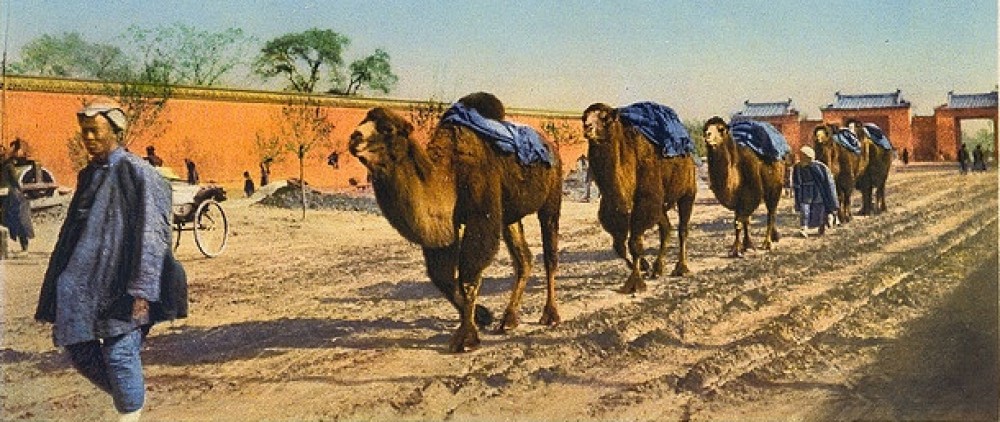Oh dear, I reluctantly retract my claim below. Bird-watcher and bird-watching (both, rather quaintly, hyphenated) are listed in the OED, but they are hidden away at the end of the entry for bird and the citations are separate from the definitions. In my defence I should state that the words don’t come up under “find word” unless you spell them with a hyphen.
As I suspected they both date back to the early 20th century and both were first used in book titles by E. Selous. Here are the citations:
1905 E. SELOUS (title) The *Bird Watcher in the Shetlands. 1930 J. S. HUXLEY Bird-Watching i. 13 From the bird-watcher pure and simple it is but a step to the bird-watcher naturalist.
1901 E. SELOUS (title) *Bird Watching. 1920 Edin. Rev. Jan. 63 Bird-Watching as a Hobby. 1930 J. S. HUXLEY Bird-Watching iii. 52 Accompanying Mr. Eliot Howard..on his bird-watching rounds. Ibid. iv. 64 A party of bird-watching friends.
I stand corrected, and have learnt a lot in the process. Here’s my original posting:
As a keen birdwatcher I was surprised to discover that the words birdwatcher and birdwatching are not in the vast, multi-volume Oxford English Dictionary. I find this extremely surprising as editors are constantly trawling for new words, and these two words are hardly the latest accretions to our mother tongue (I would guess they date back to the early 20th century or maybe late 19th century, but that’s what I was hoping to find out from the OED).
But although birdwatcher/-ing aren’t in, birding is in, with the same meaning, defined as: “colloq. The activity of bird-watching. Also attrib.” Which is a bit odd, since, as I say bird-watching (with or without the hyphen) isn’t listed.
The first recorded use of birding in the sense of birdwatching is delightful. It is from the Daily News, 1927, and reads: “Miss Fry plays the flute and joins in the arduous sport of ‘birding’. This consists in following across country any strange species of bird, and of playing the flute beneath the tree on which the melodious songster performs.” Well, this is a rather unusual approach to birding (or birdwatching) but I suppose it fits the bill.
The other examples are more conventional, and two are American, reflecting the fact that Americans are more likely (I think) to say “birding” than “birdwatching” (cf. American Birding Association). Actually more and more Brits are starting to say birding rather than birdwatching and to describe themselves as birders, and I’m not at all sure that this word should be regarded as “colloq.” these days. And the fact that the OED refers to birding as “colloq.” raises the question of what the literary or non-colloq equivalent is and why it isn’t listed.
Of course the word birding existed long before 1927, but in the sense of “The action or sport of bird-catching or fowling. arch.” The first usage of the word in this sense dates from 1569 (“An other exercise of Hunting, which is termed Fouling, or Birding.”).
Surprisingly, despite the lack of birdwatcher/-ing, twitcher and twitching, in the ornithological sense, are both in. The OED defines a twitcher as “A bird-watcher [sic] whose main aim is to collect sightings of rare birds.” Its earliest recorded use of the word is from Birds magazine (published by the RSPB), Summer 1973, and is again rather charming: “Twitchers are difficult to identify because they are polymorphic. Best clues are behavioural including carrying Zeiss binoculars and Where to Watch Birds… Known to have nested in Wandsworth and possess a sense of humour.” Of course nowadays they would carry Leica or Swarovski binoculars and a BlackBerry. The reference to Wandsworth eludes me.
The first use of twitching, defined as “The activity of a ‘twitcher’ (sense 4); obsessive or enthusiastic bird-watching for rarities”, is almost contemporaneous, dating to New Society, 17 November, 1977, and is attractively jargonish: “Sibe is twitching slang for a Siberian bird.” Sibe, incidentally, isn’t listed in the OED, and neither for that matter is jargonish (but jargonesque and jargonic are).
I should add that I found all this online at home, using my public library card. It’s a rather little known fact that the OED is available free of charge to anyone with a library card – go to your public library’s website and log in there with your library card number. A terrific free resource.
